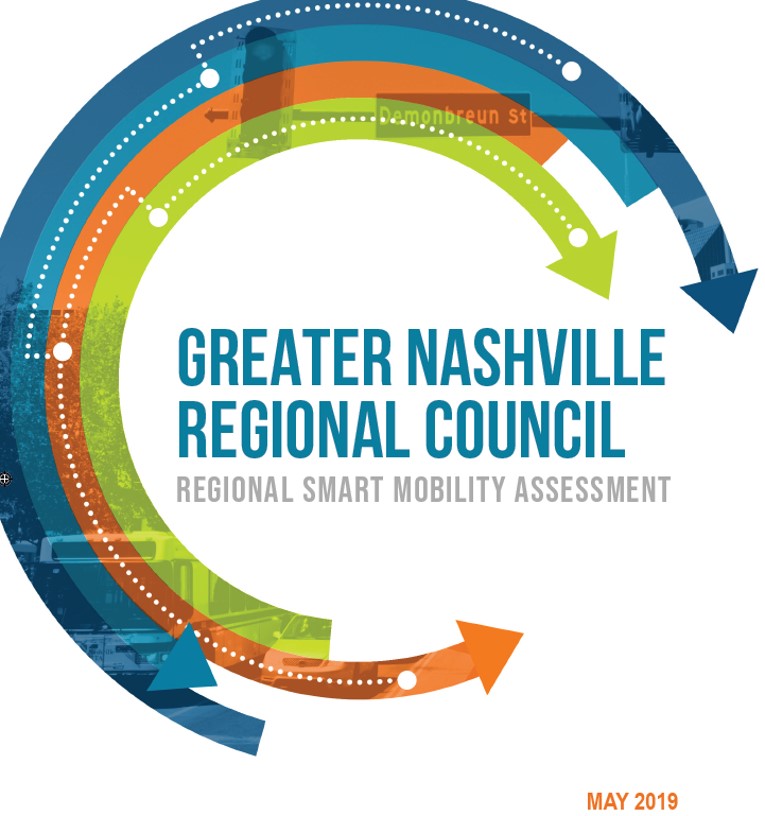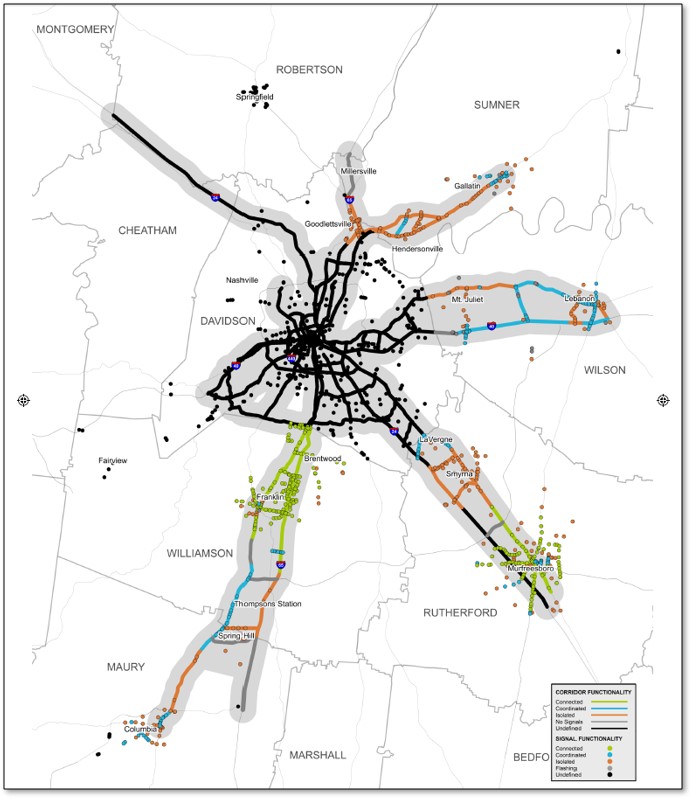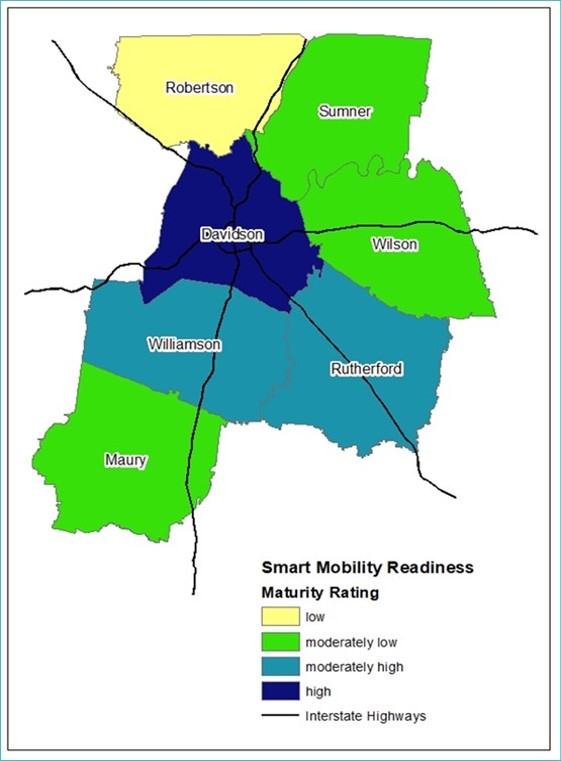Smart Mobility Readiness Assessment – A tool for community planning

Members of the VECTOR team developed a Smart Mobility Readiness Assessment Tool in partnership with Stantec for the Greater Nashville Regional Council (GNRC). The tool – a scorecard – was be developed to help communities understand their capabilities related to technological, planning, and best practices for smart and connected mobility preparedness.
Study objectives included identifying other approaches for assessing technology and mobility status of communities; establishing categories for transportation and mobility technologies, planning, data management/sharing, and synthesizing best practices associated with community smart mobility readiness; and ultimately developing a rubric to assess community “smart mobility readiness” which was applied to communities in the Greater Nashville Regional Council (GNRC) area.
The need for a Smart Mobility Assessment arose from several factors including:
- A lack of funding, staff, education and guidance on next steps.
- The challenge of service systems in areas that are entirely auto-centric.
- Uncertainty in how quickly the broader population will adapt to new mobility services.
- The need for better collaboration from community government, business, and civic association leadership.
- Missing data and privacy standards and policies.
- The benefits and impacts of Connected Automated Vehicles (CAVs) is unclear.
- The benefits that can be realized from collaborations with traffic signal controllers and IT directors roundtable.
- The limitation of inter-jurisdictional interoperability of smart mobility technologies.
Project tasks included:
- Gather information on any existing, similar scorecards for technology and mobility status focused on a select group of cities and communities
- Identify categories and levels of fidelity (i.e., breakdown of rankings) within categories for transportation and mobility technologies, planning, data management/sharing, and other best practices associated with community smart mobility readiness based upon Vanderbilt’s knowledge of smart mobility and information provided by Stantec
- Develop a rubric using the categories and levels of fidelity within categories to arrive at an overall community “smart mobility score” using the information provided and knowledge of best practices
- Apply (in partnership with Stantec) the rubric to communities in the Greater Nashville Regional Council (GNRC) area
- Determine a composite score for the GNRC region

Key themes that emerged from data collected across the region and consideration of smart mobility in other communities for Regional Smart Mobility included equity and safety; managing demand and accessing traveler information; efficiency of roads/infrastructure to move people; data sharing and privacy; interoperability/communication between modal networks; and smart planning tools.
The Smart Mobility project utilized maturity levels to assess the current status and trends to measure a community’s readiness compared to others in the region. Smart Mobility is not a “one size fits all” solution for everyone – the right fit for the level of technology as well as meetings the needs of the community is complex. More work is needed to establish targets for each community and fill data gaps.
For more information or questions, please contact Janey Camp at janey.camp@vanderbilt.edu or Craig Philip at craig.e.philip@vanderbilt.edu.
